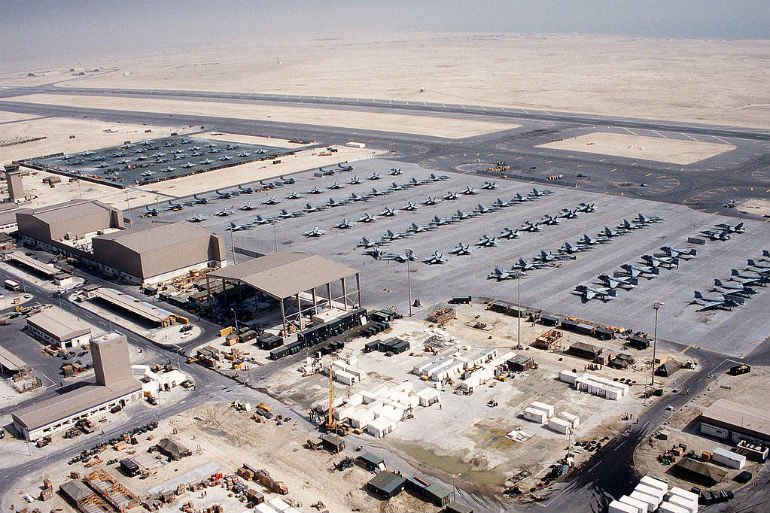Al Udeid and Ain al-Asad Bases Targeted as Iran Retaliates for Nuclear Site Bombings
In a dramatic escalation of the ongoing geopolitical crisis, Iran launched missile attacks on two major US military installations — Al Udeid Air Base in Qatar and Ain al-Asad Air Base in Iraq — in what Tehran declared was a direct response to recent US and Israeli strikes on its nuclear facilities. The Islamic Revolutionary Guard Corps (IRGC) confirmed the strikes, calling it a warning to both Washington and Tel Aviv. As fears of a regional war loom, world leaders are urging calm while both military and diplomatic tensions spiral rapidly.
Al Udeid and Ain al-Asad: Strategic Targets Under Fire
The Al Udeid Air Base, located southwest of Doha in Qatar, is the largest US military installation in the Middle East and serves as the forward headquarters of US CENTCOM (Central Command). On the night of the strikes, multiple short-to-medium-range ballistic missiles — believed to be Fateh-110 and Zulfiqar class — were launched by Iran’s IRGC targeting runways and infrastructure within the facility.
Simultaneously, Iran also fired missiles at Ain al-Asad Air Base in western Iraq, which houses both American and allied coalition forces. The precision and coordination of the dual-front attack signaled Iran’s growing missile capabilities and its willingness to hit hard at symbolic and strategic US outposts.
🚨 Iran strikes back after attacks on its nuclear sites
— Nehra Ji (@nehraji77) June 23, 2025
Missiles launched towards Al-Udeid Airbase in Qatar
— the largest U.S. military base in the Middle East.
📍Home to 8,000–10,000 American troops.#Iran #USMilitary #Qatar #DOHA pic.twitter.com/tofgkO6cQK
Early Pentagon statements suggest no confirmed American casualties so far, but damage assessment operations are underway. US troops in both bases had been put on high alert following prior warnings from Tehran, potentially minimizing the impact of the strike. Iranian state TV claimed the operation was successful, and senior IRGC officials declared that this was just the “first wave” and that further retaliation would follow if Iran is provoked again.
Regional and Global Reactions: Shockwaves Across the Gulf
The missile attacks have sent shockwaves across the region, prompting Qatar, Bahrain, and the UAE to convene emergency meetings. Qatar, which hosts Al Udeid under a longstanding defense arrangement with the US, condemned the escalation but urged all sides to practice maximum restraint. Commercial air traffic in the region was briefly disrupted as airspaces over parts of Iraq and the Gulf were temporarily closed.
In Washington, the Biden administration is facing a critical juncture. President Biden is expected to address the nation, with the National Security Council reportedly weighing options that range from limited retaliation to full-spectrum deterrence.
Meanwhile, global oil prices surged by over 4%, with markets fearing a full-blown military conflict in the Gulf — one of the world’s most vital energy corridors. Israel, a key ally of the United States and the original target of Iranian threats, has praised Washington’s military resolve while remaining on high alert for any Iranian-backed proxy attacks.
The UN and EU have both released statements calling for urgent de-escalation, fearing that this could spiral into a multi-front Middle East war. Analysts warn that further Iranian aggression could drag in more actors, including Gulf nations and Hezbollah factions, thereby destabilizing the region further.





















